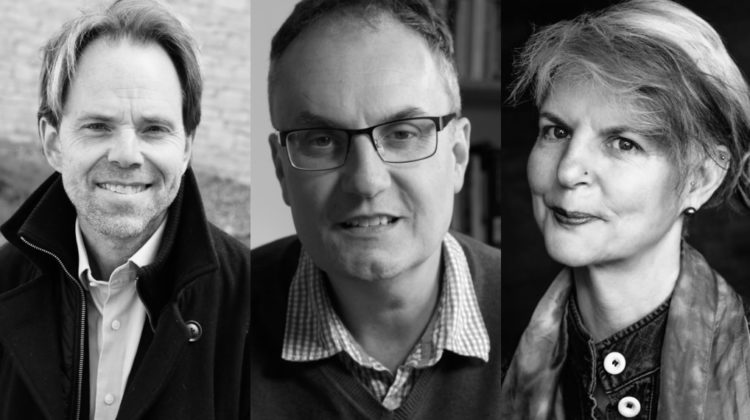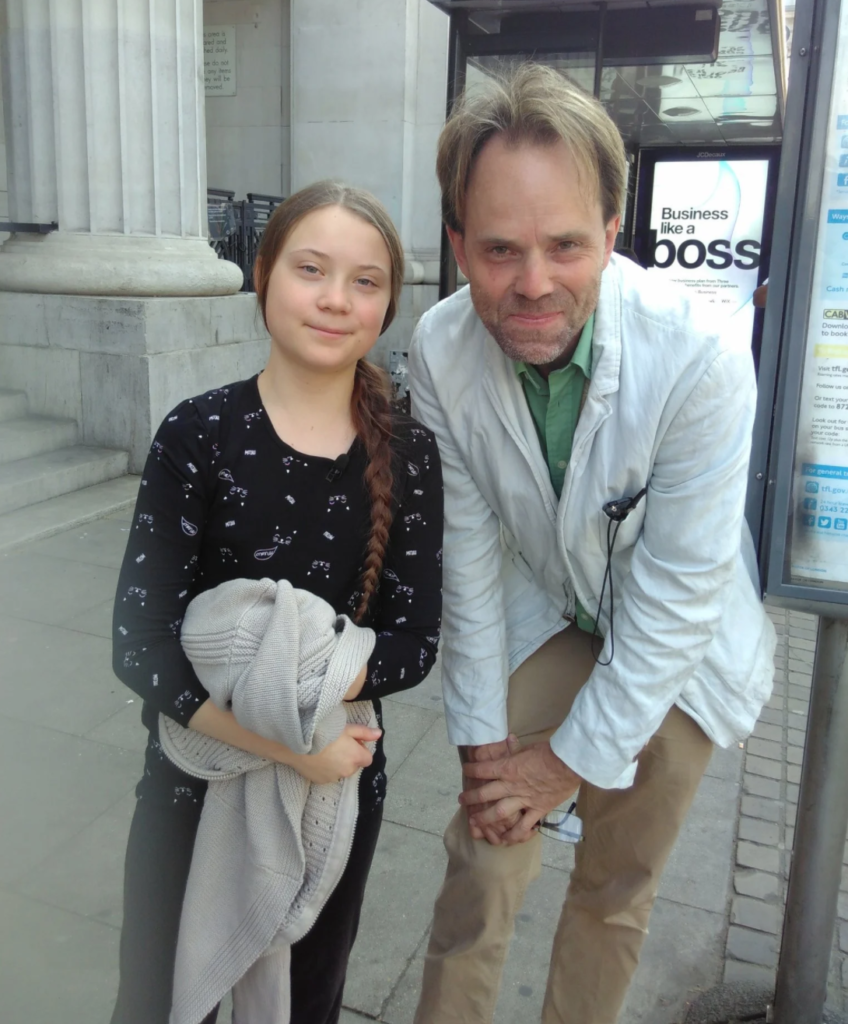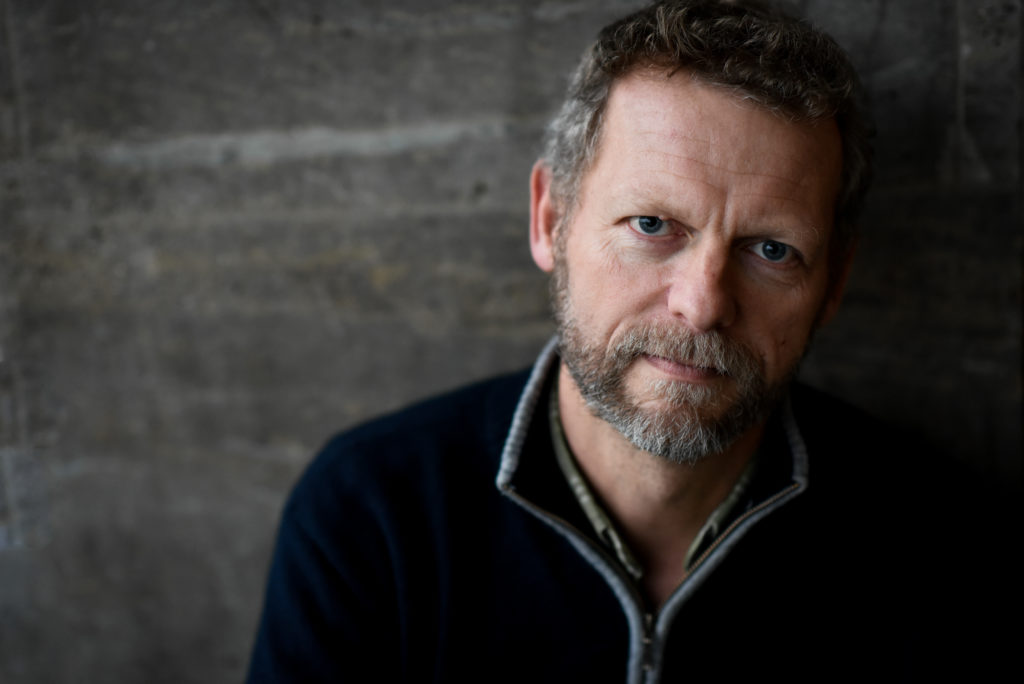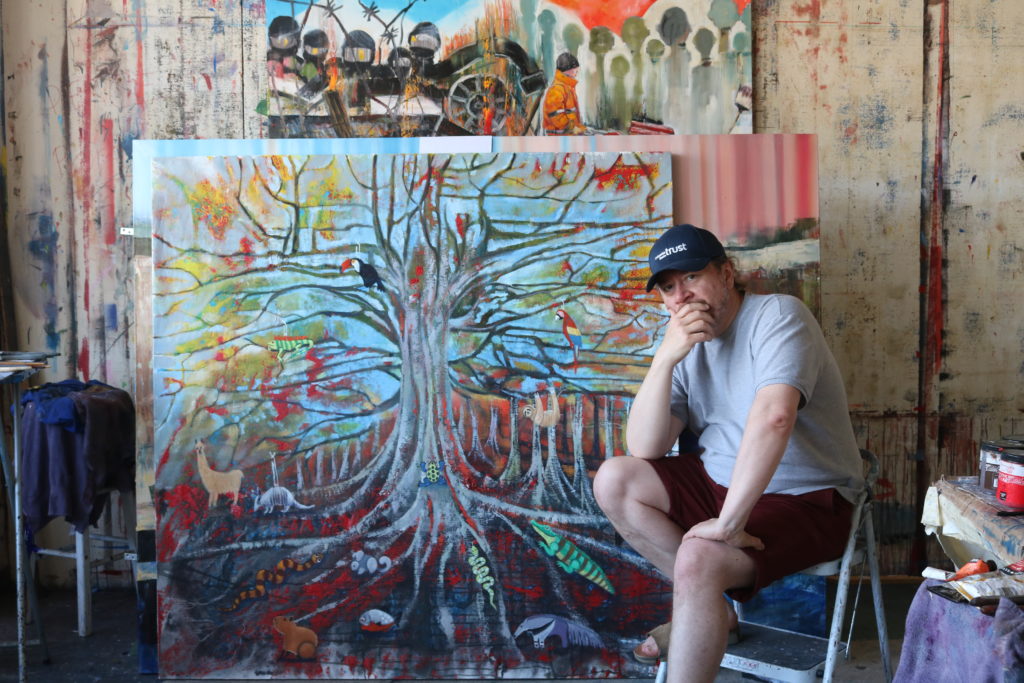
The biggest threat facing humanity – the climate crisis – will take centre stage at a unique theatre event at Norwich Arts Centre on Sunday. The people behind the three-plays-in-one explain why it really is time to make a drama out of the crisis
Bringing together creatives, academics, conservationists, activists and other collaborators, Dodo, Phoenix, Butterfly: Dramatising the Climate Crisis, on July 10, is part of a two-day symposium, Nature. Drama. Crisis. This Sunday will see actors perform three new plays featuring worst case, less bad and best case scenarios for a family of farmers based in the east of England, who have worked the land for generations but now, as a result of the climate crisis, face an uncertain future.
It is the brainchild of Rupert Read, Steve Waters, Kay Michael and Lucy Farrant. Dr Read, an activist, author and associate professor of philosophy at UEA, says: ‘We have one planet: our planet and it’s our future. We need people to visualise what is potentially coming, they need to be able to see it to really understand it.’

The title of the day has been drawn from a section of his book, This Civilisation is Finished, where he explores three potential futures: The ‘dodo’ where our civilisation becomes defunct and collapses completely; the ‘phoenix’ where civilisation still collapses but a successor is born out of the ashes; and the ‘butterfly’ where our civilisation manages to transform before it’s too late.
Director Kay Michael, a theatre-maker, creative producer, facilitator and activist, adds: ‘We are allowing ourselves to honestly face the worst-case scenarios – without recoiling from or denying the potential horror of how they could affect livelihoods, landscapes and habitats. We hope this will allow the audience to imagine their way through them: to prepare, or to rehearse for them if they were to come – and give them the ability to work together on building adaptation measures before those potential realities strike.’
As part of their research, the four paid a visit to Wheatfen, a nature reserve in the heart of the Norfolk Broads, and a nearby farm to hear about the challenges faced by those working the land to provide us with food.
Writer Steve Waters, a playwright and professor of scriptwriting at UEA, will see his work on the subject performed on both days. On July 9, at the Enterprise Centre at UEA, he will perform extracts from his monologue Rothschild’s Walk, which explores how Charles Rothschild, scion of the famous banking family, is a forgotten pioneer of the nature reserve.
Panel discussions, featuring experts from UEA and organisations and individuals who have contributed to the research – including Tangled Feet, the RSPB and the Wildfowl and Wetland Trust – will focus on dramatising species loss and finding new audiences for nature writing. The day will culminate with a site-specific theatre performance of Prof Waters’ piece, Voices from the Reeds.
The following day will see the three scenarios performed at the Arts Centre. After each, invited experts and interested parties will be asked to discuss – with the audience also welcome to give their input.
‘The challenge is to find a way of seeing the future in a way that is truthful and unflinching but doesn’t defeat us; and not completing the story for the audience, allowing them to do that work; the challenge is to create something that the audience recognises and doesn’t simply block out – to get around our instinctive tendency to resist this kind of reality,’ said Prof Waters.
‘I hope the day creates a dialogue that extends beyond into action and networks and knowledge – I hope it provides a template for other such days and creates a forum for honesty and solidarity.’
The symposium is part of this year’s Young Norfolk Arts Festival, directed by Lucy Farrant. In her view the climate crisis is a challenge facing the whole world and especially its young people. ‘It is their future we are discussing, and it is important that they are as involved as possible,’ she says.
Earlier this year, the Intergovernmental Panel on Climate Change (IPCC) released its most damning report of the current crisis yet, detailing that change is already happening faster than predicted, will be more severe and that we are not prepared for it.

A trio of actors with a combined experience of more than 70 years in the industry will star in the plays: TV, film and stage actor Susan Kyd, who appeared in popular shows including ‘Allo ‘Allo and Coronation Street; Mike Bernardin, whose acting career spans 30 years and includes stints in the West End together with teaching drama at the University of East Anglia; and relative newcomer Katie Smith, who most recently performed in the RSC’s Henry VI: Rebellion as part of their Shakespeare Nation initiative.

And paintings by Norwich artist Gennadiy Ivanov, inspired by the climate crisis, will be on show at an exhibition in the foyer of the Arts Centre to complement the production. Mr Ivanov, who has a studio in Upper St Giles Street, has been painting for 45 years but in 2018 he became concerned about the climate crisis and met with Prof Trevor Davies, former director of the Climatic Research Unit at the UEA and dean of the School of Environmental Sciences.
Since then, Mr Ivanov, who has an MA from Norwich University of the Arts, has amassed more than 200 paintings inspired by the climate crisis, which have been exhibited in Norwich, London and Canada. He is moved to paint by what he sees such as the destruction of the permafrost and the Amazon rainforest or, closer to home, coastal erosion at Happisburgh.
Dodo, Phoenix, Butterfly: Dramatising the Climate Crisis, taking place on Norwich Arts Centre on July 10, is part of a two-day symposium, Nature. Drama. Crisis. The events are a partnership between the University of East Anglia, Young Norfolk Arts and Norwich Arts Centre. About 15 pieces from Gennadiy Ivanov’s collection will be on display in the Arts Centre foyer during the event, which runs from 10am – 5pm.
Featured image (left to right): Rupert Read, Steve Waters and Lucy Farrant (picture credit of Lucy Farrant: Andy Fisher)









Leave a Reply